
Arnhem: The Green Jewel of the Netherlands
Arnhem, a city brimming with history and natural beauty, is a must-visit destination for travelers in the Netherlands. Nestled on the banks of the River Rhine, Arnhem is renowned for its lush parks, historic landmarks, and vibrant cultural scene. Whether you're a history buff, a nature enthusiast, or an art lover, Arnhem has something to offer everyone. Start your journey by exploring the city's rich past at the Airborne Museum, dedicated to the Battle of Arnhem during World War II. This poignant museum offers a deep dive into the city's wartime history and is a moving tribute to the bravery of the soldiers. The nearby John Frost Bridge, famously known as 'The Bridge Too Far,' is another historical landmark that offers stunning views of the river and the city. For nature lovers, Arnhem is a paradise. The Hoge Veluwe National Park, just a short drive away, is one of the largest nature reserves in the Netherlands. Here, you can cycle through dense forests, spot wildlife, and visit the Kröller-Müller Museum, which houses an impressive collection of Van Gogh paintings. In the city itself, the Sonsbeek Park offers serene landscapes perfect for a leisurely stroll or a picnic. Art and culture thrive in Arnhem. The city is home to the Eusebius Church, a gothic masterpiece with a panoramic elevator that provides breathtaking views of the skyline. Don't miss the Netherlands Open Air Museum, where you can step back in time and experience Dutch history and culture through interactive exhibits and traditional buildings. The Fashion Quarter (Modekwartier) is a hub for local designers and artisans, offering unique shopping experiences. Arnhem's culinary scene is equally enticing, with a variety of restaurants and cafes serving everything from traditional Dutch dishes to international cuisine. Be sure to try local specialties like poffertjes (mini pancakes) and bitterballen (savory meatballs). The city's vibrant nightlife, with its cozy pubs and lively bars, ensures that your evenings are just as enjoyable as your days.
Local tips in Arnhem
- Visit the Airborne Museum early in the day to avoid crowds and fully immerse yourself in the exhibits.
- Rent a bike to explore the Hoge Veluwe National Park; it's the best way to see the park's diverse landscapes.
- Check the schedule for local festivals and events at the Sonsbeek Park; they offer a unique glimpse into Arnhem's vibrant community life.
- Take the panoramic elevator at Eusebius Church for stunning views and photo opportunities of Arnhem's skyline.
- Explore the Fashion Quarter to find unique, handmade items by local designers and support the local creative community.
- Try the local delicacies at the city's markets, especially the poffertjes and bitterballen for an authentic Dutch culinary experience.
Arnhem: The Green Jewel of the Netherlands
Arnhem, a city brimming with history and natural beauty, is a must-visit destination for travelers in the Netherlands. Nestled on the banks of the River Rhine, Arnhem is renowned for its lush parks, historic landmarks, and vibrant cultural scene. Whether you're a history buff, a nature enthusiast, or an art lover, Arnhem has something to offer everyone. Start your journey by exploring the city's rich past at the Airborne Museum, dedicated to the Battle of Arnhem during World War II. This poignant museum offers a deep dive into the city's wartime history and is a moving tribute to the bravery of the soldiers. The nearby John Frost Bridge, famously known as 'The Bridge Too Far,' is another historical landmark that offers stunning views of the river and the city. For nature lovers, Arnhem is a paradise. The Hoge Veluwe National Park, just a short drive away, is one of the largest nature reserves in the Netherlands. Here, you can cycle through dense forests, spot wildlife, and visit the Kröller-Müller Museum, which houses an impressive collection of Van Gogh paintings. In the city itself, the Sonsbeek Park offers serene landscapes perfect for a leisurely stroll or a picnic. Art and culture thrive in Arnhem. The city is home to the Eusebius Church, a gothic masterpiece with a panoramic elevator that provides breathtaking views of the skyline. Don't miss the Netherlands Open Air Museum, where you can step back in time and experience Dutch history and culture through interactive exhibits and traditional buildings. The Fashion Quarter (Modekwartier) is a hub for local designers and artisans, offering unique shopping experiences. Arnhem's culinary scene is equally enticing, with a variety of restaurants and cafes serving everything from traditional Dutch dishes to international cuisine. Be sure to try local specialties like poffertjes (mini pancakes) and bitterballen (savory meatballs). The city's vibrant nightlife, with its cozy pubs and lively bars, ensures that your evenings are just as enjoyable as your days.
When is the best time to go to Arnhem?
Iconic landmarks you can’t miss
Burgers' Zoo
Explore the diverse ecosystems and wildlife at Burgers' Zoo in Arnhem, where adventure and education go hand in hand in a stunning natural setting.
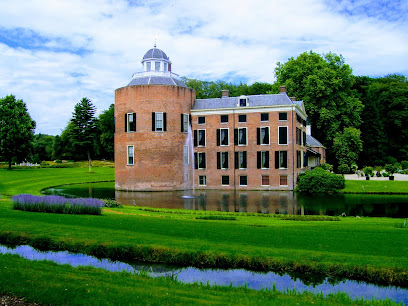
Netherlands Open Air Museum
Experience the rich tapestry of Dutch history at the Netherlands Open Air Museum, where tradition and culture come alive in an enchanting outdoor setting.
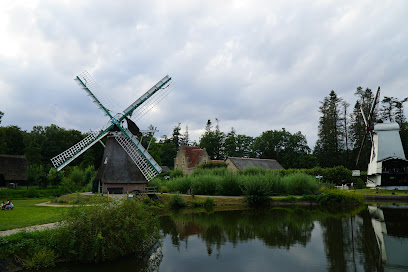
Park Sonsbeek
Explore the natural beauty of Park Sonsbeek in Arnhem, a serene park that combines art, nature, and culture for a memorable experience.
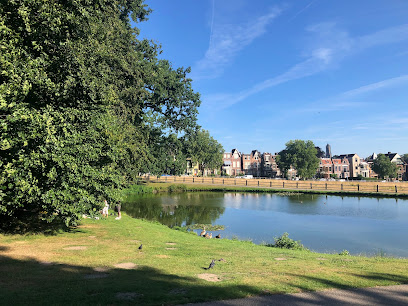
Kronenburg Shopping Center
Explore Kronenburg Shopping Center, Arnhem's premier shopping destination with diverse stores, delightful dining, and vibrant atmosphere.
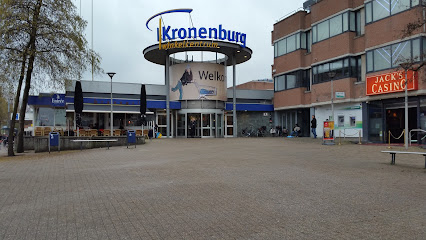
Airbornemuseum Hartenstein
Explore the poignant history of World War II at Airbornemuseum Hartenstein, a captivating museum dedicated to the Battle of Arnhem.
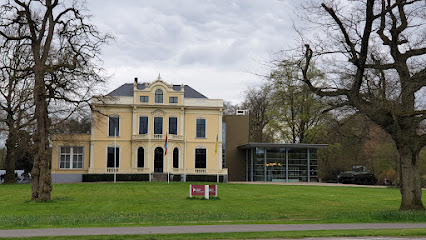
Arnhem Central Station
Experience the architectural beauty and vibrant atmosphere of Arnhem Central Station while exploring the heart of the Netherlands.
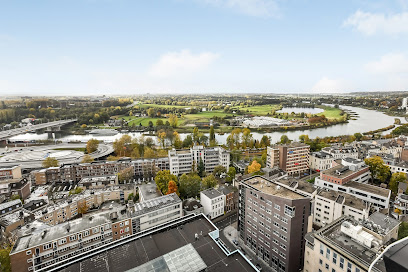
Castle Doorwerth
Explore the enchanting Castle Doorwerth, a medieval fortress surrounded by beautiful gardens, rich history, and delightful dining options in the Netherlands.
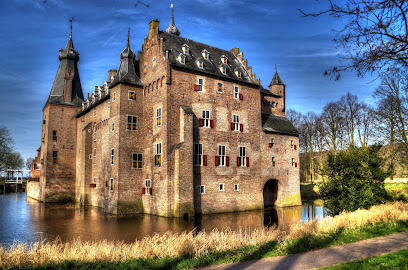
John Frost Bridge
Discover the historical John Frost Bridge in Arnhem, a remarkable monument of European history and a breathtaking architectural marvel.
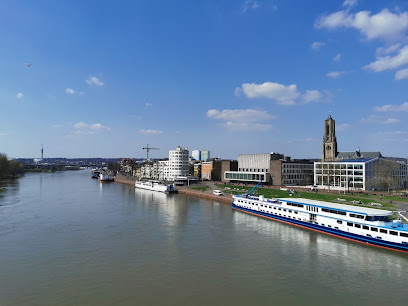
Foundation Eusebius Arnhem
Explore the rich history and breathtaking views at Foundation Eusebius Arnhem, a captivating museum and architectural gem in the heart of the city.
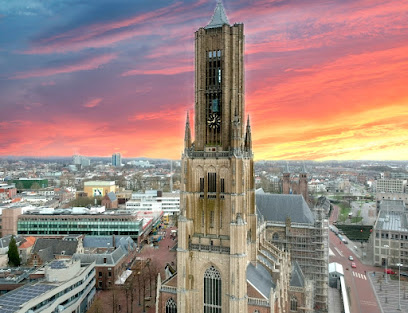
Rozet
Experience the vibrant blend of culture, art, and knowledge at Rozet, Arnhem's premier cultural center and library.
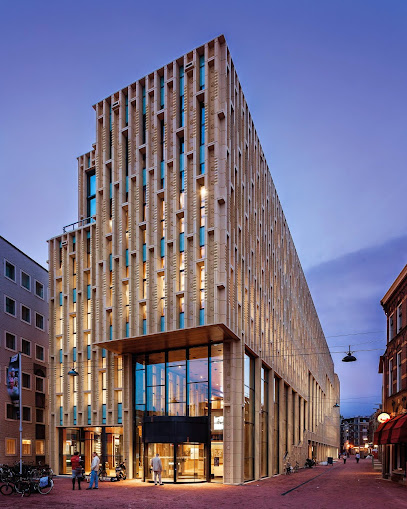
Airborne Museum at the Bridge
Explore the Airborne Museum at the Bridge in Arnhem, where history comes alive through immersive exhibits and poignant narratives from World War II.
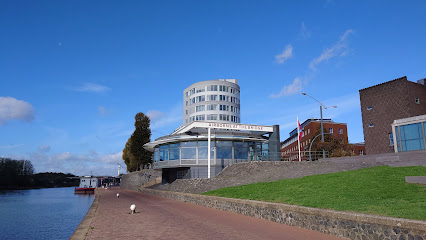
Museum Arnhem
Discover the vibrant world of modern art at Museum Arnhem, where creativity meets innovation in the heart of the Netherlands.
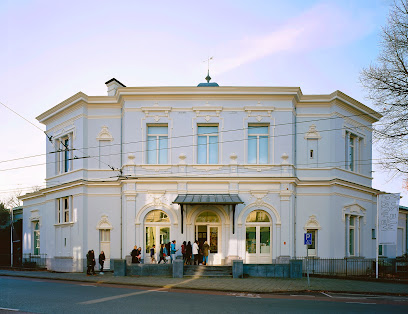
Nederlands Watermuseum
Experience a unique blend of fun and education at the Nederlands Watermuseum in Arnhem, where water comes to life through interactive exhibits and engaging displays.
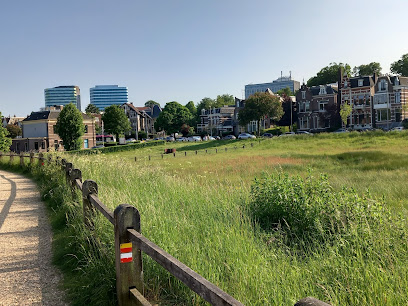
Burgers' Safari
Explore Burgers' Safari in Arnhem, a captivating wildlife park featuring immersive exhibits and a commitment to conservation and education.
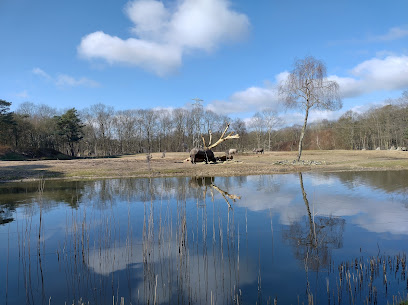
Park Angerenstein
Explore Park Angerenstein in Arnhem, a tranquil park filled with vibrant flora, serene pathways, and a perfect spot for relaxation and outdoor activities.
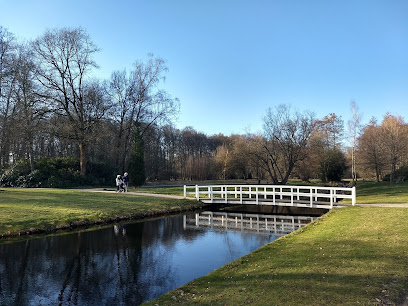
Unmissable attractions to see
Burgers' Zoo
Discover the unique ecosystems and diverse wildlife at Burgers' Zoo, a top-rated attraction in Arnhem, Netherlands, perfect for family adventures.
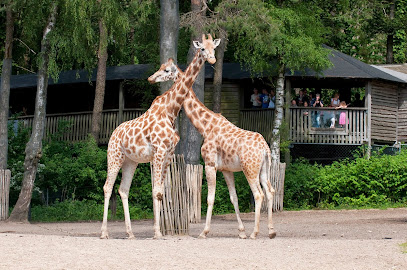
Netherlands Open Air Museum
Explore the rich heritage of the Netherlands at the Open Air Museum in Arnhem, featuring authentic buildings and immersive cultural experiences.
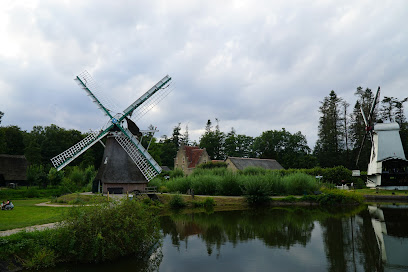
Het Nationale Park De Hoge Veluwe
Explore Het Nationale Park De Hoge Veluwe: A stunning national park filled with diverse landscapes, unique wildlife, and cultural experiences in the Netherlands.
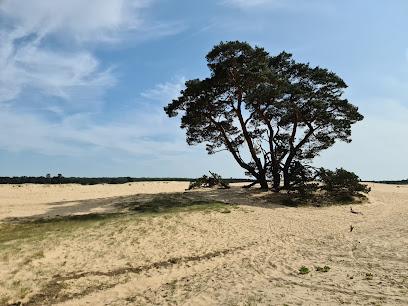
Kröller-Müller Museum
Explore the Kröller-Müller Museum: a unique fusion of modern art and nature in the heart of Hoge Veluwe National Park.
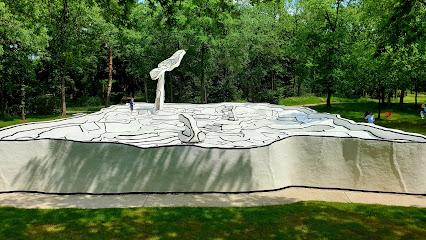
Park Sonsbeek
Explore the natural beauty and tranquility of Park Sonsbeek in Arnhem, a perfect getaway for relaxation and family outings.
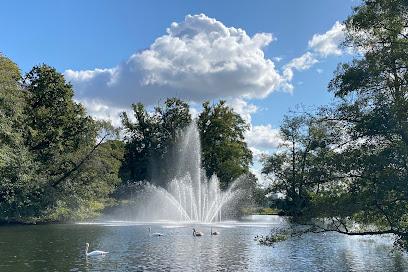
Julianatoren Apeldoorn
Experience the thrill and magic of Julianatoren, a delightful theme park in Apeldoorn, perfect for families and adventure seekers alike.
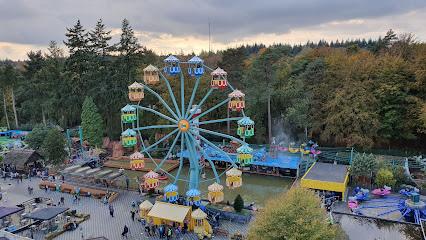
Paleis Het Loo
Discover the rich history and stunning beauty of Paleis Het Loo, a royal palace and museum in Apeldoorn, Netherlands.
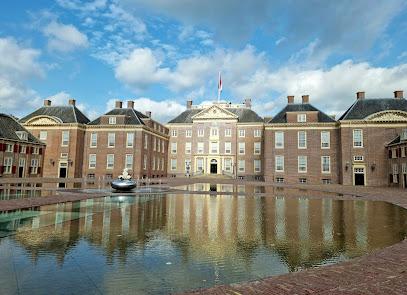
Airbornemuseum Hartenstein
Discover the rich history of World War II at the Airborne Museum Hartenstein, a tribute to bravery and resilience in Oosterbeek, Netherlands.
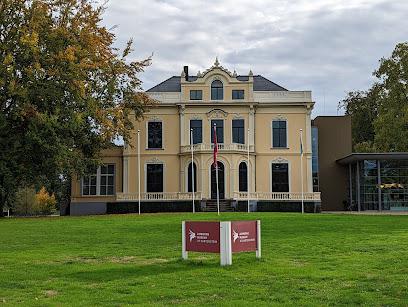
Heeswijk Castle
Explore Heeswijk Castle, a stunning historical gem in the Netherlands, blending rich history, beautiful gardens, and family-friendly activities.
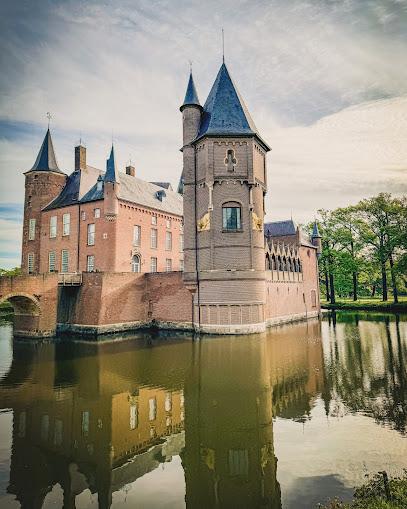
Park Berg en Bos
Explore the natural beauty of Park Berg en Bos in Apeldoorn, a serene park perfect for outdoor activities and family outings.
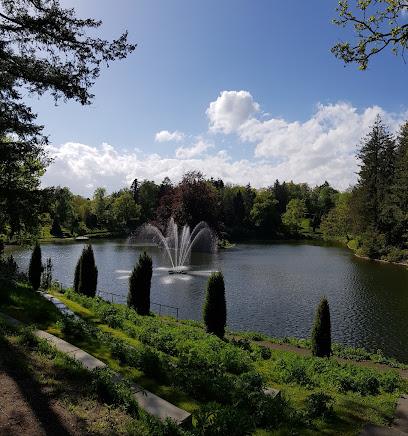
Soestdijk Palace
Explore the royal heritage and stunning architecture of Soestdijk Palace surrounded by beautiful gardens in Baarn, Netherlands.
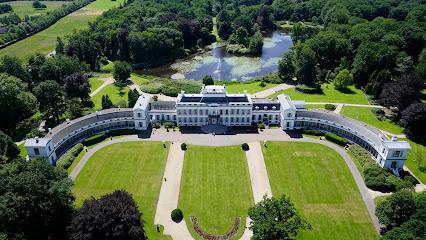
John Frost Bridge
Discover the historic John Frost Bridge in Arnhem, a remarkable landmark steeped in World War II history with scenic views along the Rhine River.
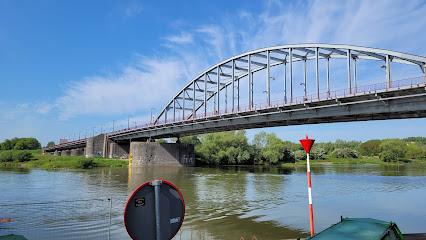
Foundation Eusebius Arnhem
Explore the Eusebius Arnhem, a historical museum and iconic church offering stunning views and rich cultural experiences in the heart of Arnhem.

Country Residence Museum Jachthuis Sint Hubertus
Explore the architectural beauty and rich history of Jachthuis Sint Hubertus in Hoge Veluwe National Park, a must-visit tourist attraction in the Netherlands.
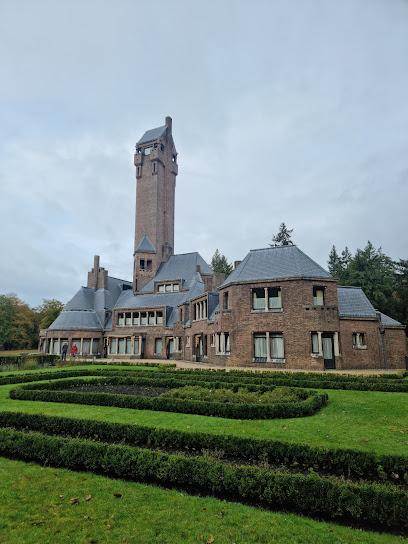
Valkhof Museum
Explore the Valkhof Museum in Nijmegen for a captivating journey through art and archaeology in a stunning setting.
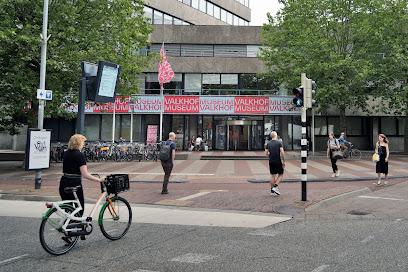
Essential places to dine
't Taphuys Arnhem
Discover 't Taphuys Arnhem: A premier beer hall blending local brews with delicious cuisine in an inviting atmosphere.
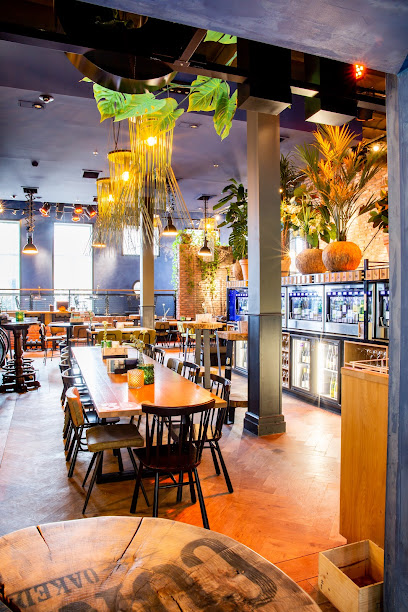
STAN Arnhem
Experience culinary excellence at STAN Arnhem – where modern dining meets vibrant bar culture in the heart of the city.
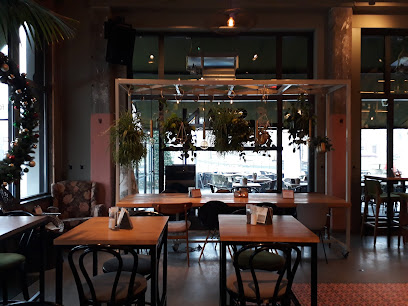
Roadhouse Arnhem Bar & Kitchen
Experience the vibrant culinary scene at Roadhouse Arnhem Bar & Kitchen with its diverse menu and welcoming atmosphere in the heart of Arnhem.
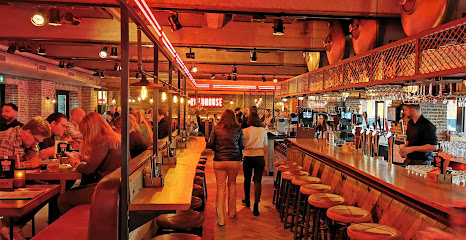
Dudok Arnhem
Experience culinary excellence at Dudok Arnhem - where local flavors meet contemporary dining in a vibrant setting.
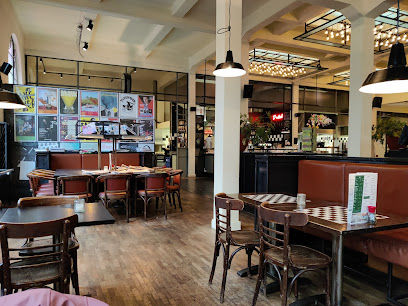
Dadawan Arnhem
Experience exquisite Asian fusion cuisine at Dadawan Arnhem - where tradition meets innovation in every delicious bite.
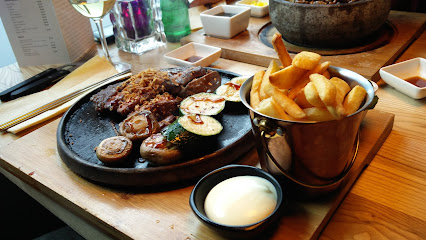
'Goed.' Proeven
Discover the culinary artistry at 'Goed.' Proeven in Arnhem - where fresh local ingredients meet innovative flavors in an inviting atmosphere.
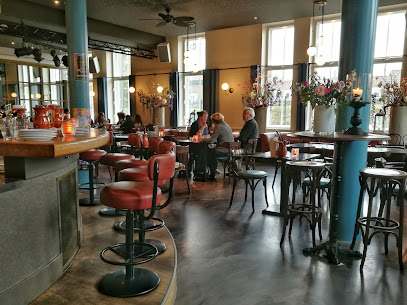
Restaurant De Beren Arnhem
Experience flavorful dishes and warm hospitality at Restaurant De Beren Arnhem, perfect for every tourist's culinary journey.
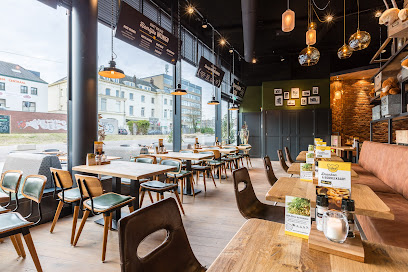
Grand Café Arnhems Meisje
Savor the flavors of Arnhem at Grand Café Arnhems Meisje – where every bite tells a story.
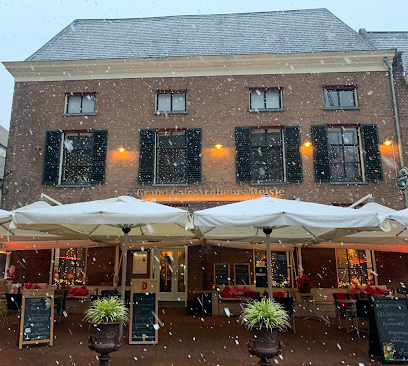
Ramblas All you can eat Tapas en Grill restaurant
Discover the vibrant tastes of Spain at Ramblas, Arnhem's ultimate all-you-can-eat tapas and grill experience.
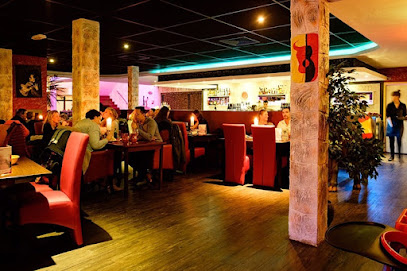
Vlees & CO Arnhem
Discover Vlees & CO Arnhem: A premier Japanese steakhouse blending tradition with innovation for an unforgettable dining experience.
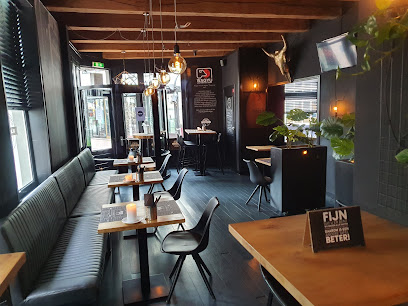
Brasserie De Boerderij
Discover the essence of Dutch cuisine at Brasserie De Boerderij in Arnhem - where fresh ingredients meet cozy ambiance.
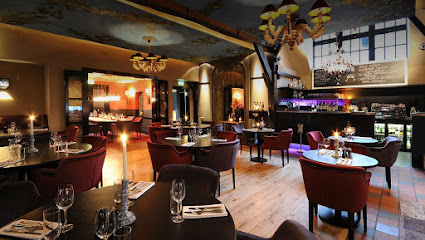
Batavia
Savor authentic Indonesian cuisine at Batavia Restaurant in Arnhem—where every dish tells a story.
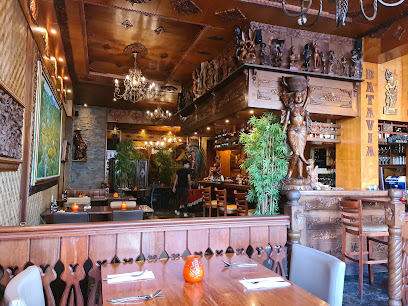
Anne & Max
Discover Anne & Max: Arnhem's top destination for organic breakfasts and brunches in a cozy atmosphere.
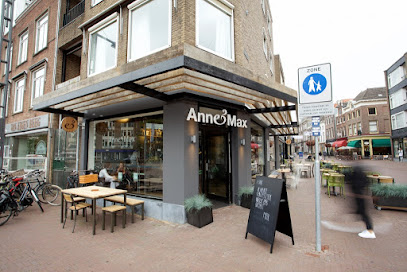
JANS’ Arnhem
Experience culinary excellence at JANS' Arnhem - where delightful dishes meet vibrant atmosphere in the heart of the city.
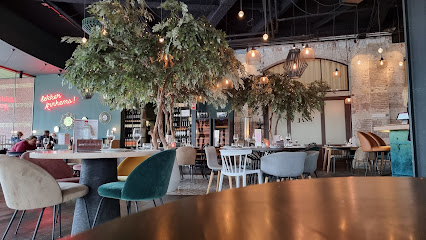
Restaurant Trix
Experience the rich flavors of Dutch cuisine at Restaurant Trix in Arnhem, where culinary excellence meets warm hospitality.
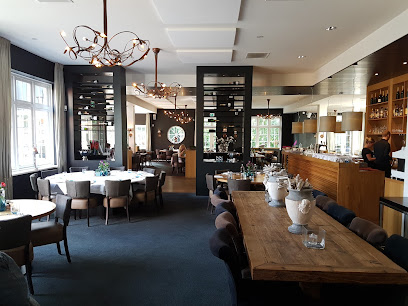
Markets, malls and hidden boutiques
Kronenburg Shopping Center
Discover an exciting shopping experience at Kronenburg Shopping Center in Arnhem, where fashion, food, and fun meet.
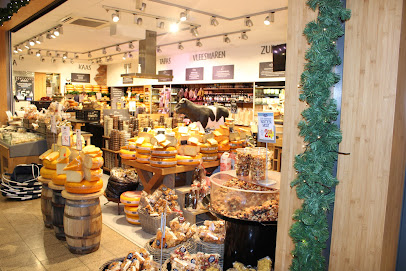
Primark
Explore unbeatable fashion and value at Primark in Arnhem, where style meets affordability for every shopper.
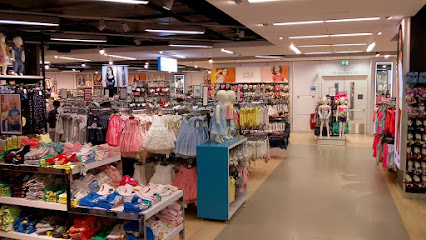
Action
Explore Arnhem's enchanting gift shop, where unique treasures and thoughtful gifts await every traveler in a delightful shopping experience.
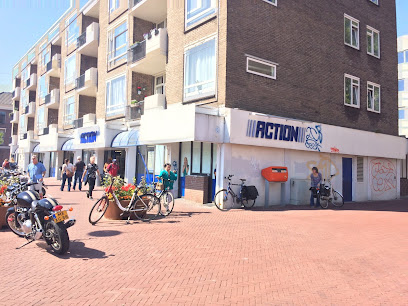
Dille & Kamille
Experience the essence of Dutch design at Dille & Kamille, Arnhem's charming gift shop offering unique home goods, toys, and specialty items.
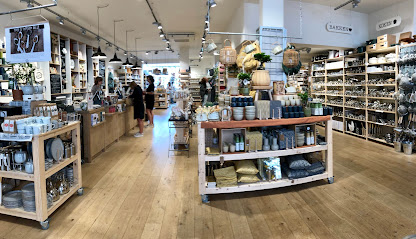
The Sting
Explore The Sting in Arnhem for trendy fashion and unique apparel that suits every style and occasion.
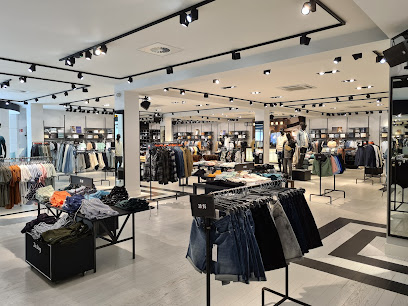
NEW YORKER
Explore the latest fashion trends in Arnhem at NEW YORKER, your go-to clothing store for all ages and styles.
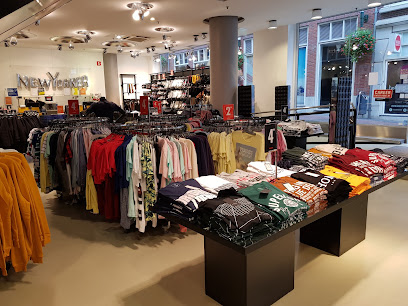
H&M
Explore stylish apparel for all ages at H&M Arnhem, where fashion meets affordability in a trendy shopping experience.
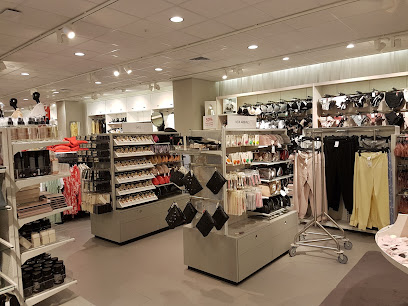
Flying Tiger Copenhagen
Explore an eclectic mix of gifts, home goods, and whimsical accessories at Flying Tiger Copenhagen in Arnhem, a shopper's paradise for unique finds.
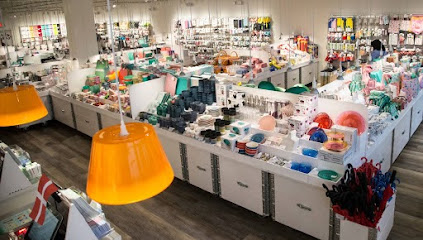
Fabrics & More Arnhem
Explore the charming Fabrics & More Arnhem for unique vintage clothing and furniture, offering a delightful shopping experience in the heart of Arnhem.
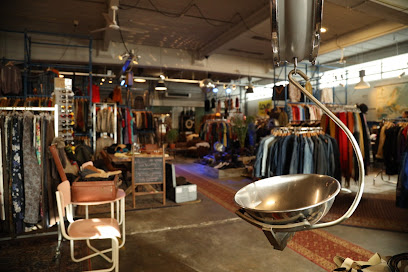
Waar Arnhem
Explore Waar Arnhem, a charming gift shop offering unique souvenirs and local crafts, perfect for capturing memories of your visit.
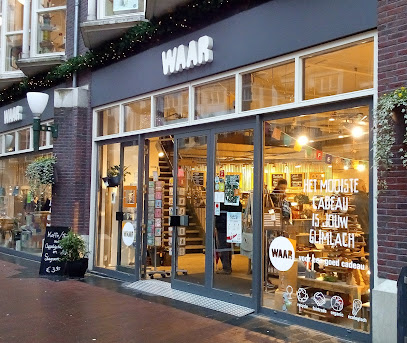
Hartley's Engelse Winkel Arnhem
Experience authentic English flavors at Hartley's Engelse Winkel Arnhem, a gourmet grocery store with a unique selection of British delicacies.
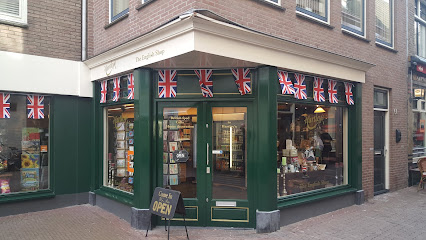
ReShare Store Arnhem
Explore the charm of ReShare Store Arnhem, a vintage clothing haven offering sustainable fashion choices for the eco-conscious shopper.
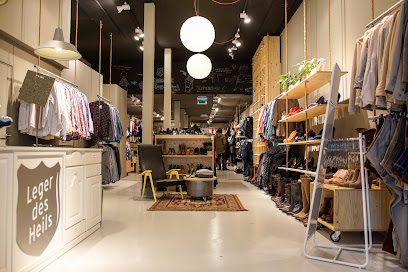
LOFT the Store | Interior & Fashion
Explore Arnhem's LOFT the Store for unique gifts, stylish fashion, and exquisite home decor, all reflecting the charm of Dutch design.
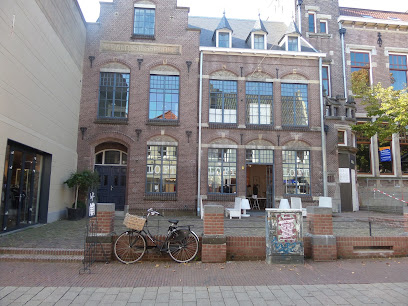
De Alchemist shop Arnhem
Explore De Alchemist Shop in Arnhem for a unique blend of alternative health products, souvenirs, and local culture in a welcoming atmosphere.
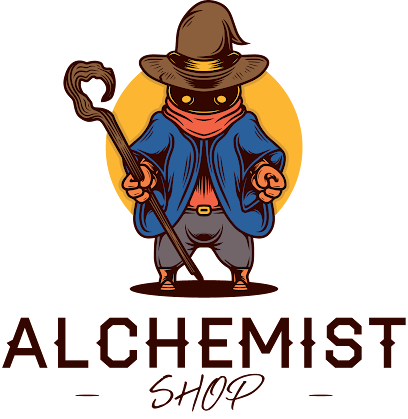
Maison My Jewellery
Discover unique jewelry, fashion accessories, and stylish gifts at Maison My Jewellery in Arnhem, a shopper's paradise for every occasion.
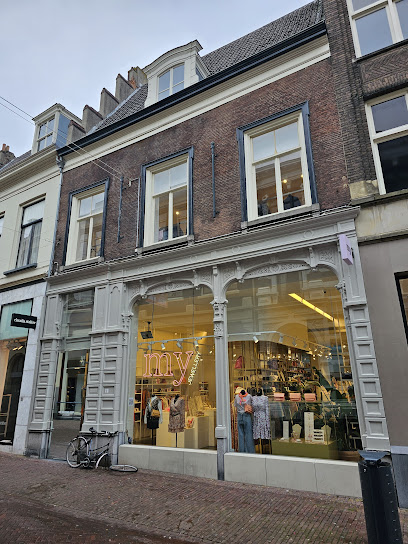
Essential bars & hidden hideouts
't Taphuys Arnhem
Experience the best of Dutch beer culture at 't Taphuys Arnhem, where a diverse selection meets a vibrant atmosphere.
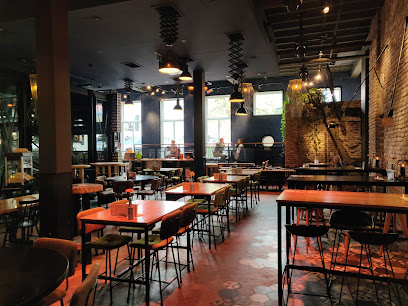
STAN Arnhem
Discover STAN Arnhem, a culinary gem where local flavors meet vibrant ambiance, perfect for a memorable dining experience during your visit.
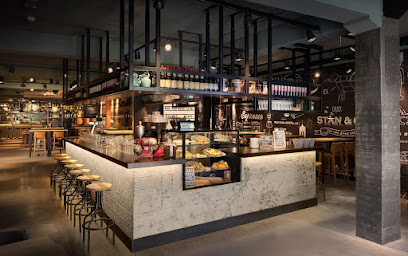
Irish Pub Mick O'Connells
Discover the heart of Ireland at Mick O'Connells, Arnhem's beloved Irish pub offering authentic cuisine, a lively atmosphere, and a taste of traditional hospitality.
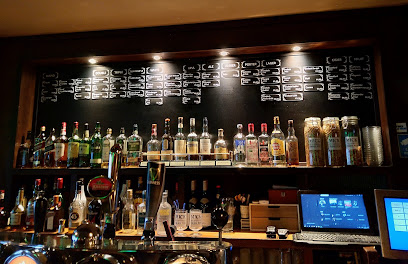
Bar Florian
Discover the vibrant Bar Florian in Arnhem, where casual dining meets an energetic nightlife atmosphere with exquisite food and drinks.
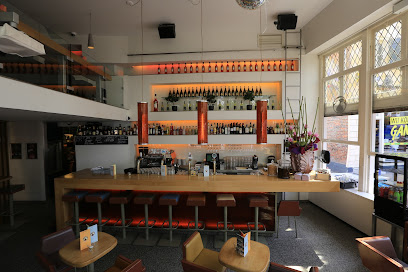
The Cavern Café
Experience the vibrant nightlife of Arnhem at The Cavern Café, where great drinks and lively entertainment await every night.
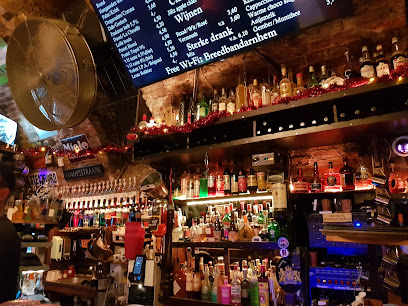
Café De Beugel
Experience the vibrant atmosphere and unique beer selection at Café De Beugel, a key highlight of Arnhem's nightlife.
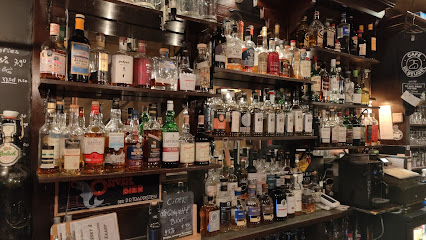
Café 't Huys
Experience the energetic atmosphere of Café 't Huys, Arnhem's top sports bar, where great food, live sports, and DJ nights come together.
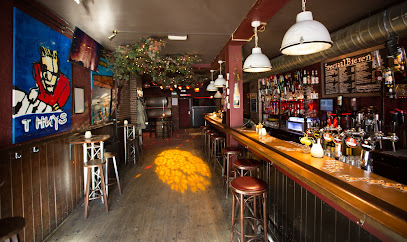
Shooters
Experience the vibrant nightlife at Shooters in Arnhem, offering crafted cocktails and a lively atmosphere perfect for unwinding.
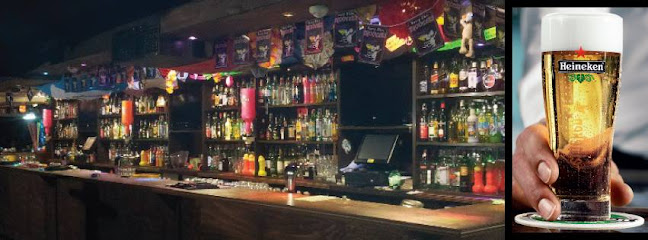
Unibar
Unibar: A lively bar and brewpub in Arnhem, offering an eclectic drinks menu and vibrant nightlife to enrich your travel experience.
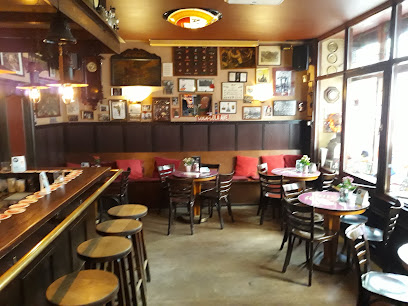
Cafe Bloopers
Discover the heart of Arnhem at Cafe Bloopers, where local flavors meet a friendly atmosphere in this charming pub.
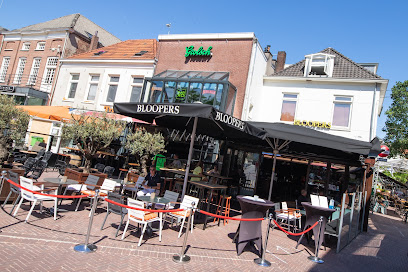
JEU de boules bar Arnhem
Discover the vibrant atmosphere of Arnhem's Jeu de Boules Bar, where fun meets relaxation with every game played.
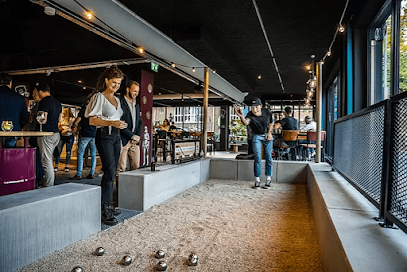
Het Barretje No. 15
Discover the lively spirit of Arnhem at Het Barretje No. 15, your go-to bar for drinks and local culture in the heart of the city.
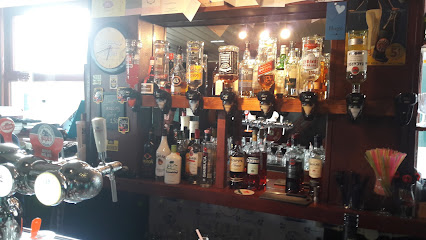
Bar XO
Experience the vibrant nightlife at Bar XO in Arnhem, where great drinks and a lively atmosphere await you.
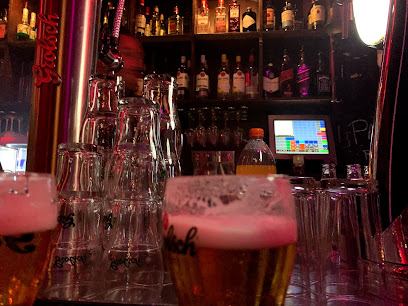
Freaky Piano Bar
Discover the unique blend of live music and vibrant nightlife at Freaky Piano Bar, Arnhem's go-to spot for an unforgettable evening of entertainment and drinks.
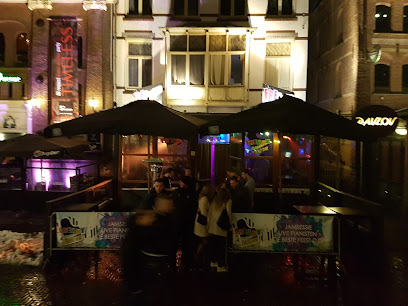
Local Phrases
-
- HelloHallo
[hah-loh] - GoodbyeTot ziens
[toht zeeynz] - YesJa
[yah] - NoNee
[nee] - Please/You're welcomeAlsjeblieft
[ahls-yuh-bleeft] - Thank youDank je wel
[dahnk yuh vell] - Excuse me/SorrySorry
[soh-ree] - How are you?Hoe gaat het met je?
[hoo gahht het met ye?] - Fine. And you?Goed. En met jou?
[khoot. en met yow?] - Do you speak English?Spreek je Engels?
[sprayk ye en-khels?] - I don't understandIk begrijp het niet
[ik buh-khreyp het neet]
- HelloHallo
-
- I'd like to see the menu, pleaseIk wil graag de menukaart zien, alstublieft
[ik vil khrahkh duh meh-noo-kahrt seen, ahl-stoo-bleeft] - I don't eat meatIk eet geen vlees
[ik ayt khayn flays] - Cheers!Proost!
[prohst] - I would like to pay, pleaseIk wil graag betalen, alstublieft
[ik vil khrahkh buh-tah-luhn, ahl-stoo-bleeft]
- I'd like to see the menu, pleaseIk wil graag de menukaart zien, alstublieft
-
- Help!Help!
[help] - Go away!Ga weg!
[gah vekh] - Call the Police!Bel de politie!
[bel duh poh-lee-see] - Call a doctor!Bel een dokter!
[bel ayn dohk-tuhr] - I'm lostIk ben verdwaald
[ik ben vuhr-dwahlt] - I'm illIk ben ziek
[ik ben zik]
- Help!Help!
-
- I'd like to buy...Ik wil graag kopen...
[ik vil khrahkh koh-puhn...] - I'm just lookingIk kijk alleen maar
[ik kaiyk ahl-uhn mahr] - How much is it?Hoeveel kost het?
[hoo-vale kost het?] - That's too expensiveDat is te duur
[daht is tuh dyoor] - Can you lower the price?Kunt u de prijs verlagen?
[kunt oo duh prays vuh-rahkh-uhn?]
- I'd like to buy...Ik wil graag kopen...
-
- What time is it?Hoe laat is het?
[hoo laht is het?] - It's one o'clockHet is een uur
[het is ayn oor] - Half past (10)Half elf
[hahlf elf] - MorningOchtend
[ohk-tuhnt] - AfternoonMiddag
[mih-dahkh] - EveningAvond
[ah-vohnt] - YesterdayGisteren
[khis-tuh-run] - TodayVandaag
[fahn-dahkh] - TomorrowMorgen
[mohr-ghun] - 1Een
[ayn] - 2Twee
[tvay] - 3Drie
[dree] - 4Vier
[veer] - 5Vijf
[vayf] - 6Zes
[zehs] - 7Zeven
[zay-vuhn] - 8Acht
[ahkht] - 9Negen
[nay-khuhn] - 10Tien
[teen]
- What time is it?Hoe laat is het?
-
- Where's a/the...?Waar is een/de...?
[vahr is ayn/de...] - What's the address?Wat is het adres?
[vaht is het ah-drehs?] - Can you show me (on the map)?Kunt u me laten zien (op de kaart)?
[kunt oo meh lah-tuhn seen (op duh kart)?] - When's the next (bus)?Wanneer is de volgende (bus)?
[vahn-ehr is duh fohl-ghuhn-duh (bus)?] - A ticket (to ....)Een kaartje (naar ....)
[ayn kahrt-yuh (nahr ....)]
- Where's a/the...?Waar is een/de...?
History of Arnhem
-
Arnhem's history dates back to the early Middle Ages, with its first mention in historical records occurring in the year 893. The city grew around the banks of the River Rhine and became an important trading post. By 1233, it was granted city rights, which marked a significant development in its urban structure and governance.
-
During the Dutch Golden Age in the 17th century, Arnhem flourished economically and culturally. The city's strategic location made it a hub for commerce and trade. Architectural advancements from this period are still visible today, with many Renaissance-style buildings and structures dotting the cityscape.
-
In the late 18th and early 19th centuries, Arnhem fell under French control during the Napoleonic Wars. The city's administration and social structure underwent significant changes during this period, influencing its development and the daily lives of its inhabitants.
-
The 19th century brought the Industrial Revolution to Arnhem, transforming it into a modern city. The introduction of railways and industrial enterprises spurred rapid urbanization. This period saw the establishment of several factories and the expansion of the city’s infrastructure.
-
Arnhem is perhaps best known internationally for its role in World War II, specifically during Operation Market Garden in September 1944. This ambitious Allied operation aimed to secure key bridges in the Netherlands, including the Arnhem Bridge. Despite the bravery of the Allied forces, the battle for Arnhem ended in a German victory, leading to significant destruction and loss of life. The events are immortalized in the book and film 'A Bridge Too Far'.
-
After the devastation of World War II, Arnhem underwent extensive reconstruction. The post-war era saw the city rebuilding its infrastructure and housing, with a focus on modern urban planning. Today, Arnhem is known for its vibrant cultural scene, green spaces, and innovative architecture, while still retaining its historical charm.
-
Arnhem is renowned for its cultural institutions, including the Netherlands Open Air Museum and the Kröller-Müller Museum, which houses an impressive collection of modern art. The city's annual fashion and design events, such as the Arnhem Fashion Festival, highlight its contemporary artistic vibrancy.
Arnhem Essentials
-
Arnhem is accessible via several modes of transportation. The nearest major airport is Amsterdam Schiphol Airport, located approximately 100 kilometers west of Arnhem. From Schiphol, you can take a direct train to Arnhem Central Station, which takes around 70-90 minutes. Alternatively, you can drive from Schiphol to Arnhem, which takes about an hour and a half via the A12 and A50 highways. Bus services and taxis are also available for transfers from the airport to Arnhem.
-
Arnhem has a well-developed public transportation system, including buses, trams, and trains. The city center is compact and walkable, making it easy to explore on foot. For longer distances, the local bus and tram services are convenient and efficient. The OV-chipkaart is the primary payment method for public transport, and it can be used on buses, trams, and trains. Bicycles are also a popular mode of transport, and there are numerous bike rental shops in the city. Taxis are available but can be expensive.
-
The currency used in Arnhem is the Euro (EUR). Credit and debit cards are widely accepted in most shops, restaurants, and hotels. ATMs are readily available throughout the city for cash withdrawals. It is advisable to carry some cash for small purchases, especially in markets and smaller establishments. Contactless payments via smartphones are also becoming increasingly common.
-
Arnhem is generally a safe city for tourists, but like any urban area, it is important to take standard precautions. Avoid walking alone at night in poorly lit or unfamiliar areas. Keep an eye on your belongings in crowded places to avoid pickpocketing. Areas such as the train station and bus terminals can be busier and require more vigilance. If you need assistance, the local police are approachable and helpful.
-
In case of emergency, dial 112 for police, fire, or medical assistance. Arnhem has several hospitals and medical clinics, with Rijnstate Hospital being the largest. Pharmacies are available throughout the city for minor health concerns. It is advisable to have travel insurance that covers medical emergencies. For non-urgent issues, you can visit a local general practitioner (huisarts).
-
Fashion: Do wear comfortable and casual clothing, but avoid overly revealing outfits, especially when visiting churches or historical sites. Religion: Do respect local customs and traditions, especially in religious sites. Public Transport: Do be respectful and give up your seat for elderly passengers. Don't eat or drink on public transport. Greetings: Do greet people with a handshake. A friendly nod or smile is also appreciated. Eating & Drinking: Do try local delicacies and accept food offerings graciously. Don't refuse hospitality, as it is considered impolite.
-
To experience Arnhem like a local, visit the local markets such as the Eusebius Market, held every Friday and Saturday, where you can buy fresh produce and Dutch specialties. Explore the Sonsbeek Park, a favorite spot for locals to relax and enjoy nature. Attend local events and festivals, such as the annual World Statues Festival. Engage with locals, as they are often friendly and willing to share stories about the city’s history and culture.
Trending Landmark in Arnhem
-
Burgers' Zoo
-
Netherlands Open Air Museum
-
Park Sonsbeek
-
Kronenburg Shopping Center
-
Airbornemuseum Hartenstein
-
Arnhem Central Station
-
Castle Doorwerth
-
John Frost Bridge
-
Foundation Eusebius Arnhem
-
Rozet
-
Airborne Museum at the Bridge
-
Museum Arnhem
-
Nederlands Watermuseum
-
Burgers' Safari
-
Park Angerenstein
Nearby Cities to Arnhem
-
Things To Do in Nijmegen
-
Things To Do in Amersfoort
-
Things To Do in Utrecht
-
Things To Do in Zwolle
-
Things To Do in Eindhoven
-
Things To Do in Amsterdam
-
Things To Do in Haarlem
-
Things To Do in Essen
-
Things To Do in Rotterdam
-
Things To Do in Leiden
-
Things To Do in Dusseldorf
-
Things To Do in Delft
-
Things To Do in The Hague
-
Things To Do in Genk
-
Things To Do in Munster













